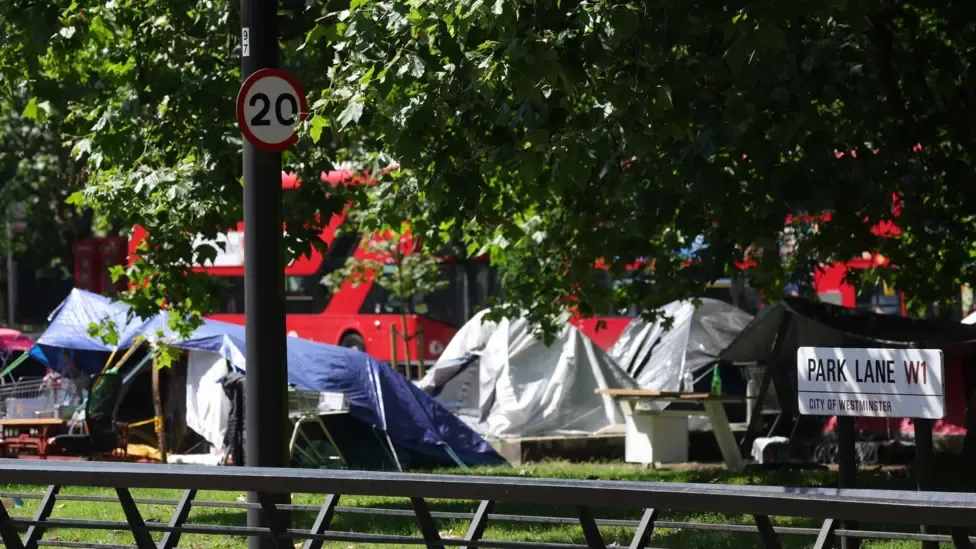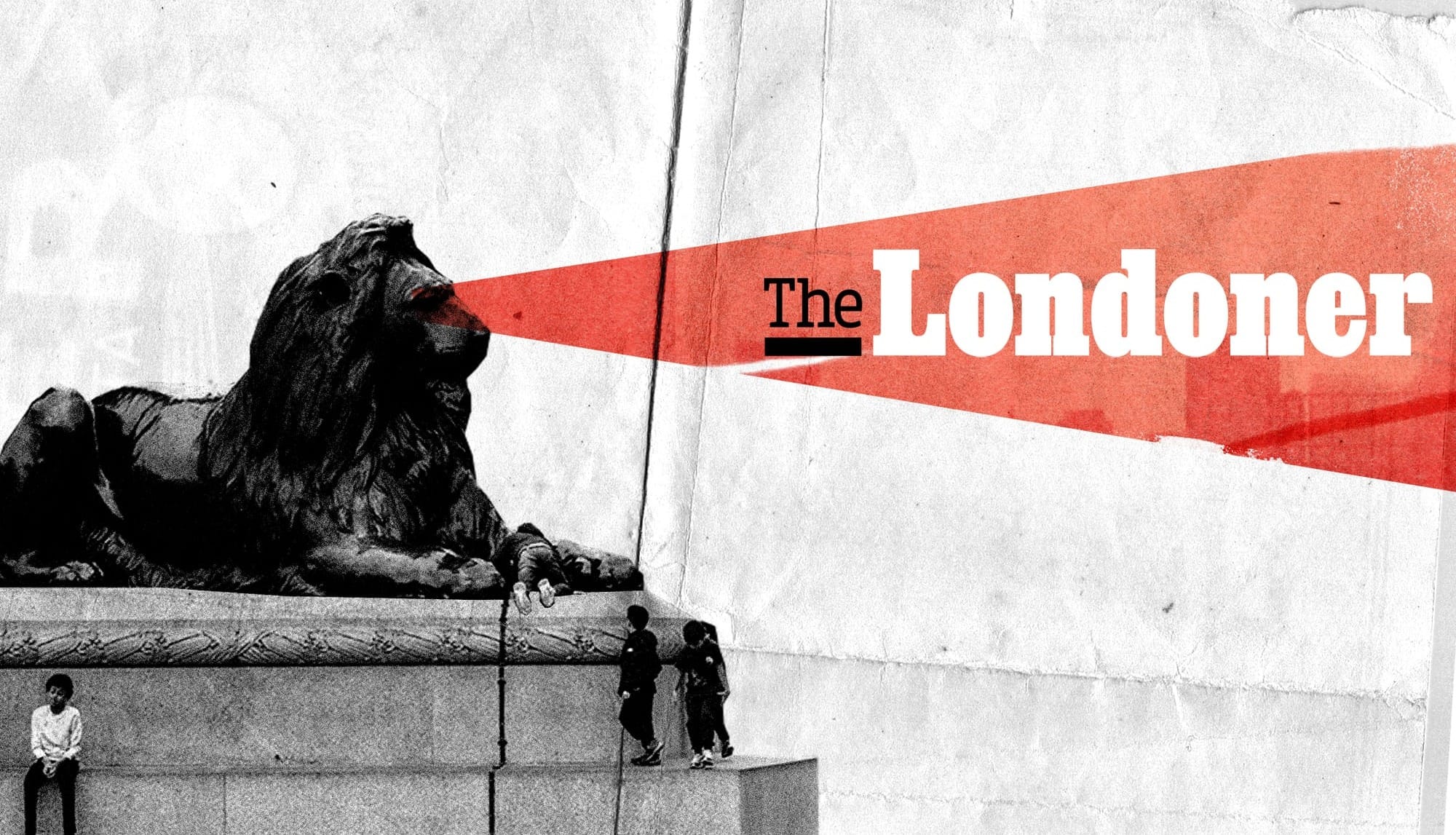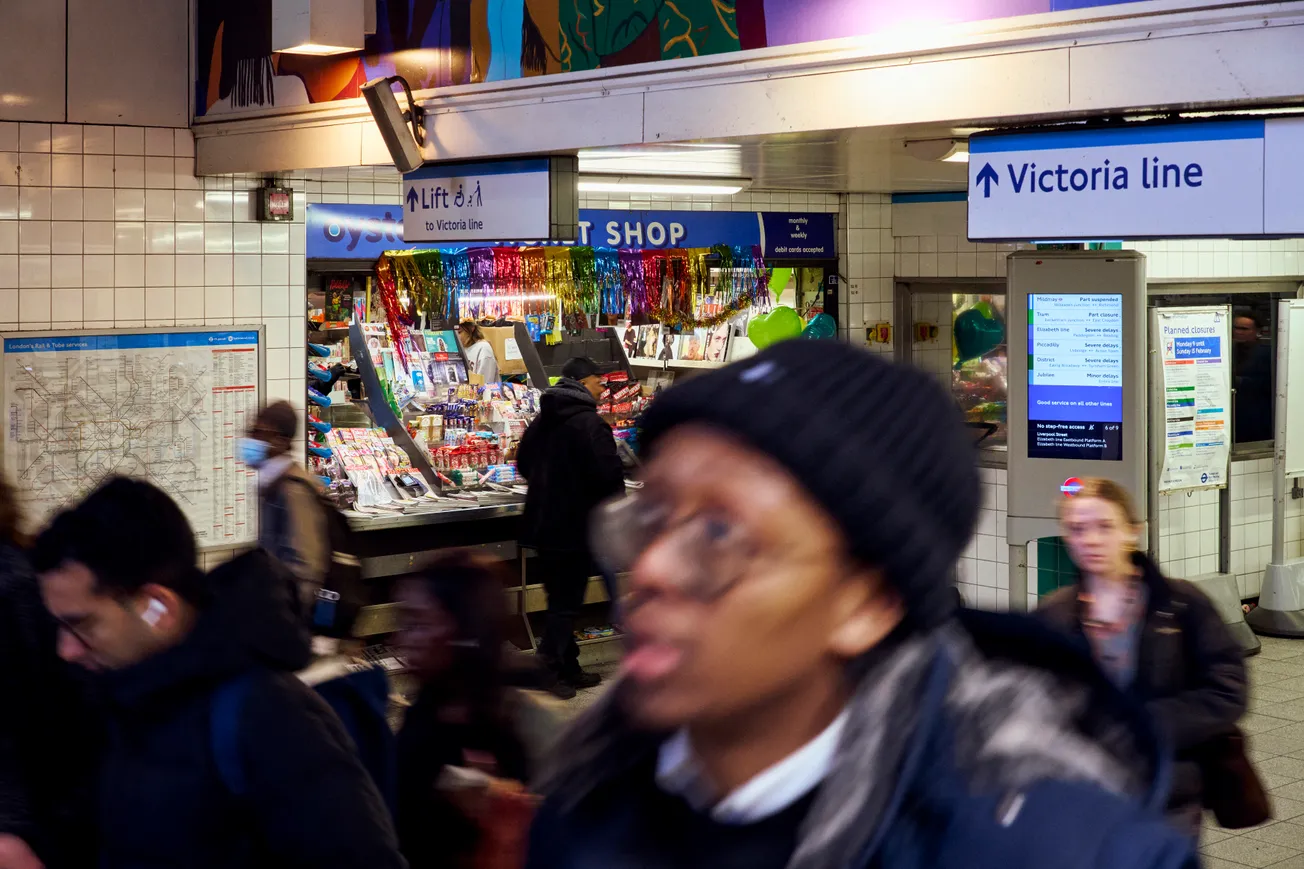Dear Londoners — we hope you're feeling rested after another one of those strange, muggy weekends we seem to keep having. In today's briefing, we're examining what's happening with the homeless encampment on Park Lane and what that says about the state of homelessness in the capital, as well as your usual mix of news, activities and places to dine (plus, the perfect martini). Enjoy!
Welcome to The Londoner, a brand-new magazine all about the capital. Sign up to our mailing list to get two completely free editions of The Londoner every week: a Monday briefing, similar to the one you're about to read, full of everything you need to know about that’s going on in the city; and a high-quality, in-depth weekend long-read.
No ads, no gimmicks: just click the button below and get our unique brand of local journalism straight to your inbox.
Fancy a bargain? We're gifting you 50% off, making a Londoner subscription just £4.95 a month for your first three months. Supporting us means you're at the forefront of a new form of journalism for the capital, as well as gaining access to all of our members-only content. Act fast though, it can't stay forever.
Big story: Park Lane’s homeless encampment is being cleared. But what can it tell us about living on the capital’s streets?
Top line: TfL have been granted permission to clear a temporary encampment on the strip of green land in the centre of Park Lane, the road running from Hyde Park Corner to Marble Arch that’s home to some of the capital’s most lucrative real estate.
History: This has become somewhat of a pattern. TfL were granted permission to remove a homeless encampment of around 40 people in the area in September 2024, with the tents dismantled in October. In 2021, Westminster City Council cleared the area of a camp thought to have been there for around seven years, after a nearby group of homeless people were moved from the pedestrian subway in 2014.
Why is it such a big deal? The Park Lane encampment is the most prominent example of London’s homelessness crisis. Although it’s hard to find precise data on how many people are homeless in the capital, a record 13,000 people were registered as being seen to sleep rough in London in 2024–2025. An acute shortage of affordable housing coupled with lack of local government funding, means that the number has grown exponentially in the last decade and a half — and it doesn’t show signs of slowing down, with a 26% rise in people living on the capital’s streets compared to last year.
Homeless charity St Mungo’s called for compassion for the people in the Park Lane encampment, and that those there needed to be supported in accessing emergency accommodation, housing in the privately rented sector and specialist accommodation.
The issue has also been absorbed into wider political battles, becoming a flash point for critics of mayor Sadiq Khan — who they argue isn’t doing enough to deter the rough sleepers — and for those opposed to migration (some of the camp's inhabitants are reportedly Roma travellers).
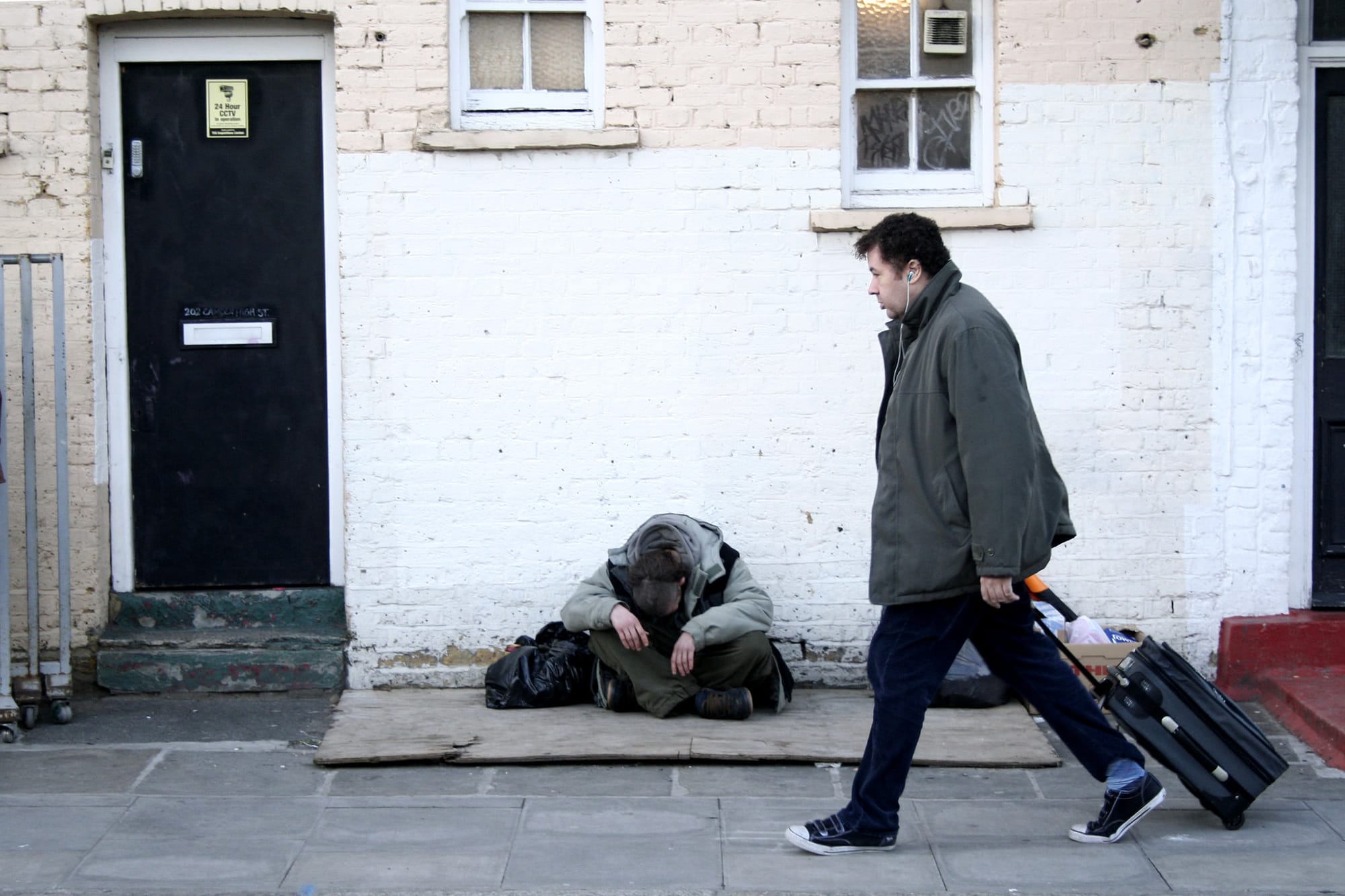
What’s being done about it?: The mayor has pledged to end rough sleeping in the capital by 2030, for which he has secured £17m in capital funding from the government. He’s also announced that he will end the current requirement for people to be seen actively sleeping on the streets before they can access support, and to ensure that early help is available to those at greatest risk of rough sleeping. This is part of a broader response: City Hall's rough sleeping budget is £44.8m in 2025-26, a five-fold increase on 2016, when the mayor took office.
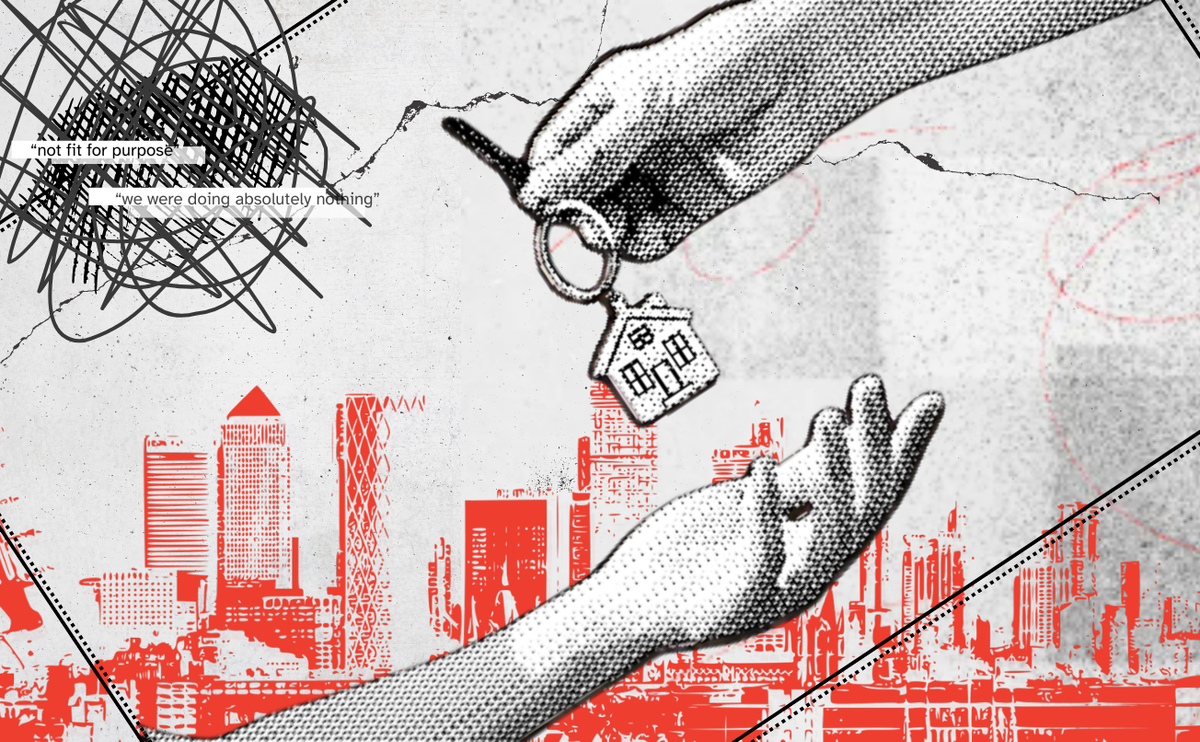
But even dealing with the Park Lane encampment isn’t cheap. In a reply to an FOI request by the Local Democracy Reporting Service (LDRS), TfL revealed it spent £35,260 on clearing the site in 2024–25 and £1,714 so far this year. According to the BBC, an additional £404 had been spent since the FOI response was received, making a total of £37,378 — not counting the court charges expected later this month.
Your news briefing
🪧 Anti-asylum hotel protests spread to central London this weekend, as demonstrators gathered outside the Thistle City Barbican Hotel in Islington, and the Britannia International Hotel in Canary Wharf. Both are being used as Home Office accommodation. In Islington, those gathered were met with an anti-racism counter-protest, which drew “large numbers”, according to Guardian reporting. Anti-asylum hotel demos have become a frequent occurrence in the UK over the last few years, although had yet to hit inner London in earnest — until now. Protesters claim that areas around Home Office temporary accommodation see rising crime rates; a Financial Times report (£) found that while Islington has seen a 12% increase in crime over the past year, this isn’t out of step with other parts of the borough. To boot, Metropolitan Police data found that crime levels in the Thistle Barbican hotel area were ninth lowest out of 17 council wards.
🍴City Hall’s al fresco dining scheme has launched in Shoreditch. One of four locations selected to take part in the £300,000 “Summer Streets” initiative, on Friday independent bars and restaurants in Redchurch Street and Rivington Street rolled out the picnic benches, with traffic prohibited on the roads from 6pm to midnight. Momentum behind pedestrianising key bits of London is growing, with plans to ban traffic from Oxford Street moving ahead, as well as trials in Camden. As part of the Summer Streets roll out, thoroughfares in Brixton, the West End and Leyton will all see car-free hours implemented over the next few weeks, running until the end of the year.
Outdoor dining is on the menu in Shoreditch this summer! ☀️🥙🍻
— Sadiq Khan (@SadiqKhan) August 2, 2025
Shoreditch is the latest of four London neighbourhoods to get an al-fresco dining and drinking boost, thanks to City Hall’s Summer Streets scheme. pic.twitter.com/pYtlG4GDFc
🏅The City of London Corporation is apparently considering awarding President Donald Trump the Freedom of the City of London, to “get [the president] in the room”, reports City A.M. Trump is to embark on his second state visit to the UK in September, during parliamentary recess and plans are allegedly afoot to grant him the symbolic honour in order to build a closer trading relationship between the Corporation and the U.S. It might be an uphill battle to get everyone on board though; the subcommittee responsible for approving the move, however, are “unconvinced”.
If you missed it
Last week’s stories:
- “He doesn’t understand that there is a limit". In West London, wealthy property owners are being duped by a charming Italian, who leaves behind a trail of debt and damage. Cormac Kehoe went in hunt of Claudio Di Giovanni for our weekend read.
- Beneath the shadow of Canary Wharf’s skyscrapers is a full-blown, working farm — London’s largest in fact. But now the residents of Mudchute Farm — animal and human — face an uncertain future and are locked into a battle with Tower Hamlets council after a new administration changed their approach to rental agreements.
Fancy more news from The Londoner in your inbox? Four days a week, we send you a carefully chosen story, plus our best scoops, investigations and recommendations. We prioritise quality over quantity and everything we send is in your inbox — just click the button below to join our free mailing list below. That's it: no ads, no spam, no nonsense.
Wining and dining
With endless offerings and non-stop openings, we all know that deciding where to eat and drink in the capital can be fraught. We want to make it easy — so every week we’ll give you our insider guide to the city’s best spots.
One perfect meal:
The man behind Imad’s Syrian Kitchen, Imad Alarab, has had the kind of life people make films about. A successful chef and restaurateur in his native Damascus, his businesses were destroyed in six days during the Syrian civil war, and Alarab fled from the violence with just £12 in his pocket. For 64 days he slept on the steps of a church in Calais, cooking for other refugees, before making it to London and being granted asylum. After a brief stint as a used-car salesman, he began to host pop-ups and supper clubs before opening his own restaurant in Soho in 2020.

Now in an even larger premises in Kingly Court, Imad’s Syrian Kitchen is a perfect example of how the capital’s food scene is made ever more brilliant by its embrace of those who decide to settle here. The dishes are excellent: large plates of Mudakhan Ghanam (slow roasted lamb shoulder with cashews and hazelnuts), sides of crunchy, herby falafel and pillowy flatbreads. And, like Alarab himself, the atmosphere is buzzy and cheery, making this spot the platonic ideal of a weeknight cheer-me-up.
One perfect drink:
Whether it’s merely the influence of social media trends or the need for strong alcohol in hard times, the martini’s ascendant popularity is undeniable. It’s hard to find a better spot than Dukes, where mononymous cocktail expert Alessandro and his team are pouring from 3–10pm (after-shopping treat, anyone?). The martinis here aren’t cheap (at last reckoning, a wince-inducing £22.50), but it is, after all, the bar where Ian Fleming supposedly came up with “shaken, not stirred”. The interior, all patterned carpet and tasselled armchairs and portraits of admirals on the wall, is pleasingly old-school rich person. But it’s when the cocktail trolley comes around that the magic happens. Made with equal parts gin and vermouth, and poured into a frozen glass (Alessandro doesn’t approve of ice, which muddies the flavour) they’re perfect: clear and astringent and oh-so-slightly spiced with Amalfi lemon.
Our favourite reads (and watches)
How London became the members’ club capital of the world – The Times, Joseph Bullmore (£)
With over 130 private members' clubs in existence, and more on the way, why is the UK capital such a breeding ground for an exclusive spot? Joseph Bullmore sorts the Lighthouse Social from Apollo’s Muse in this enlightening dispatch from behind the velvet ropes.
Critical: Between Life and Death — Netflix
This unflinching six-part documentary goes behind the scenes at London’s major trauma centres to detail the systems (and the injuries — this is not a watch for the squeamish) that goes into saving a life.
To Do List
- South London institution the Prince of Peckham is running an ongoing “Peckham University” lecture series this summer, with free talks from experts about a different aspect of Black history every Tuesday. On 5 August, Dr Michelle Asantewa will be unpacking the stories of African women resistance leaders — free entry.
- On 6 August, Westminster Abbey opens its doors for a rare late. Avoid the crowds and take a peaceful wander under the vaulted ceilings for £15.
From the archive
While you might think that TikTok street style critics are a thoroughly 2020s phenomenon, this 1940s Pathé reel shows you’d be sorely mistaken. Come for the vintage shots of Piccadilly Circus, stay for the frankly insane fashion takes.


